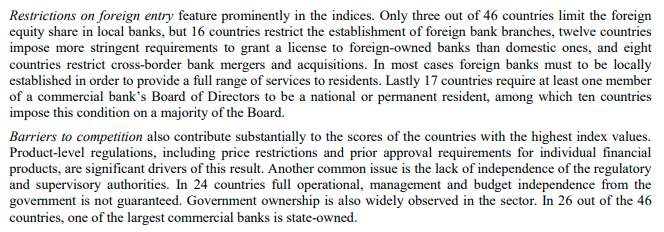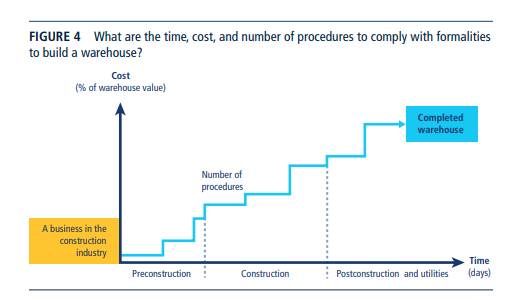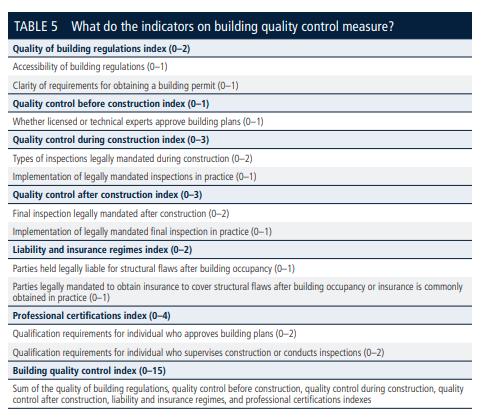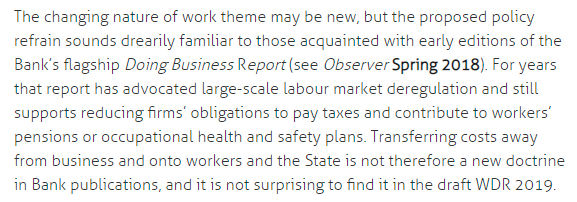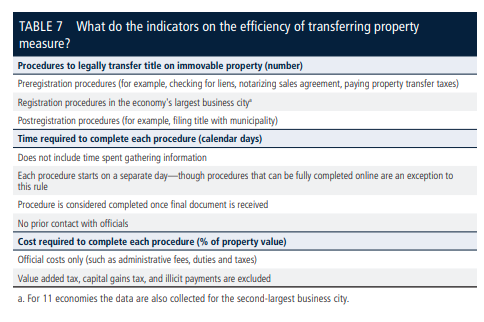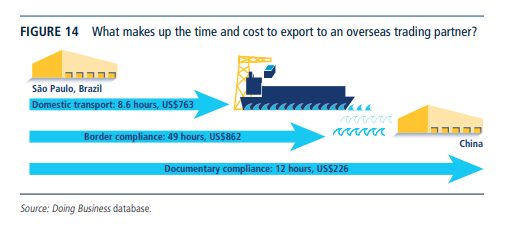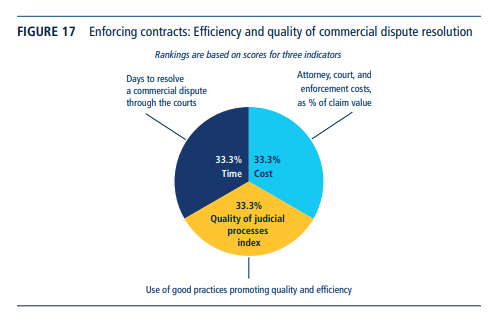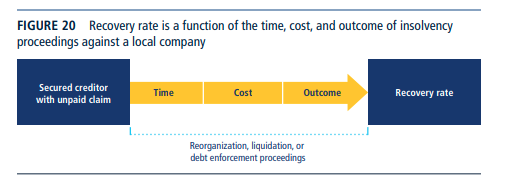This OECD paper attempts to quantify policy-induced barriers to services trade and comes up with some high topline numbers.
I may have missed it, but I didn& #39;t see much if any discussion of what these policies are.
https://www.oecd-ilibrary.org/trade/the-costs-of-regulatory-barriers-to-trade-in-services_bae97f98-en">https://www.oecd-ilibrary.org/trade/the...
I may have missed it, but I didn& #39;t see much if any discussion of what these policies are.
https://www.oecd-ilibrary.org/trade/the-costs-of-regulatory-barriers-to-trade-in-services_bae97f98-en">https://www.oecd-ilibrary.org/trade/the...
For that, you have to head over to the Services Trade Restrictiveness Index Regulatory Database (STRI), which the paper& #39;s authors rely on.
https://qdd.oecd.org/subject.aspx?Subject=063bee63-475f-427c-8b50-c19bffa7392d">https://qdd.oecd.org/subject.a...
https://qdd.oecd.org/subject.aspx?Subject=063bee63-475f-427c-8b50-c19bffa7392d">https://qdd.oecd.org/subject.a...
Examples of barriers in the US: " In courier services, there is a monopoly for letters weighing less than 12,5 ounces and the major postal services provider in the country is controlled by the government."
So, the USPS is a barrier to services trade.
http://www.oecd.org/trade/topics/services-trade/documents/oecd-stri-country-note-united-states.pdf">https://www.oecd.org/trade/top...
So, the USPS is a barrier to services trade.
http://www.oecd.org/trade/topics/services-trade/documents/oecd-stri-country-note-united-states.pdf">https://www.oecd.org/trade/top...
The report on the US also notes: "Overall, the United States is one of the countries where the government interferes least with private suppliers through state ownership: aside from the postal operator, no major firm is owned by the federal government in the sectors included."
Non-"Independent" central banks are deemed a barrier to services trade, as is prior approval for offering financial services products.
http://www.oecd.org/trade/topics/services-trade/documents/oecd-stri-sector-note-commercial-banking.pdf">https://www.oecd.org/trade/top...
http://www.oecd.org/trade/topics/services-trade/documents/oecd-stri-sector-note-commercial-banking.pdf">https://www.oecd.org/trade/top...
These are of course value judgments (which the banking report notes), but the OECD takes a "just the numbers" approach.
In telecom, requirements to show locally produced entertainment come in for scrutiny.
http://www.oecd.org/trade/topics/services-trade/documents/oecd-stri-sector-note-broadcasting.pdf">https://www.oecd.org/trade/top...
http://www.oecd.org/trade/topics/services-trade/documents/oecd-stri-sector-note-broadcasting.pdf">https://www.oecd.org/trade/top...
The BBC - another barrier.
"Under Barriers to competition the most commonly observed contribution to the index is one or more state-owned broadcasters that enjoy competitive advantages related to funding or other favourable conditions."
"Under Barriers to competition the most commonly observed contribution to the index is one or more state-owned broadcasters that enjoy competitive advantages related to funding or other favourable conditions."
Give procurement preferences to your local providers or "only" to members of the WTO government procurement agreement (which facilitates reciprocal erosion of "Buy National" policies)? Another barrier.
The STRI also incorporates data from the World Bank Doing Business rankings, which ding countries for having requirements to start a business or procedures before construction can happen. Think environmental reviews, local consultation, etc.
https://openknowledge.worldbank.org/bitstream/handle/10986/32436/211440app.pdf">https://openknowledge.worldbank.org/bitstream...
https://openknowledge.worldbank.org/bitstream/handle/10986/32436/211440app.pdf">https://openknowledge.worldbank.org/bitstream...
Have requirements for firms to purchase liability insurance for structural flaws in buildings, or do many firms choose to do so voluntarily? Another ding.
For years, the Doing Business report also penalized having labor regulations - something @ituc has long highlighted.
https://www.brettonwoodsproject.org/2018/07/pro-business-agenda-drives-world-banks-wdr-changing-nature-work/">https://www.brettonwoodsproject.org/2018/07/p...
https://www.brettonwoodsproject.org/2018/07/pro-business-agenda-drives-world-banks-wdr-changing-nature-work/">https://www.brettonwoodsproject.org/2018/07/p...
There& #39;s a lot of discussion these days of wealth registries, thanks to the work of @gabriel_zucman and others. Would you be surprised to know that property registries merit another ding?
Have corporate taxes, regardless of whether they& #39;re well calibrated to help business and other public needs? Another ding.
Inspect the safety or legality of imports (which takes time and government resources)? Ding ding ding.
Does your legal system prioritize resolution of human rights claims over private contract enforcement? Sorry buddy. Ding.
I really hope you don& #39;t have a minimum wage or holidays or overtime rules or something other than employment at will.
Wasn& #39;t really planning on making this a thread, but it& #39;s good to regularly remind ourselves that the metrics we use for services trade flows and barriers are bananas.
Here& #39;s the above as a blog: https://medium.com/@toddntucker/service-trade-barriers-metrics-bananas-acf134af81a6">https://medium.com/@toddntuc...
Here& #39;s the above as a blog: https://medium.com/@toddntucker/service-trade-barriers-metrics-bananas-acf134af81a6">https://medium.com/@toddntuc...

 Read on Twitter
Read on Twitter

